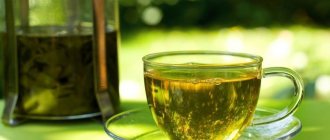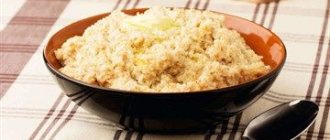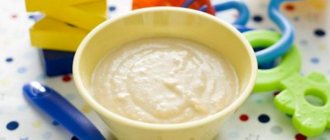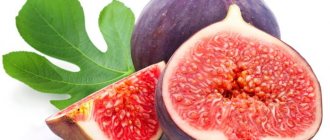Kefir is part of any diet, including during lactation. Is kefir really so beneficial for breastfeeding or are there “pitfalls” and a nursing woman needs to use the fermented milk product carefully? Indeed, in addition to being a source of calcium and normalizing the gastrointestinal tract, kefir contains such controversial lactose.
Fresh kefir during breastfeeding is very useful for a nursing mother in the absence of individual intolerance to the product.
The benefits of kefir during breastfeeding
The components of dairy products must be present in the diet of a nursing woman. But it happens that, remembering the boiled drink with foam from childhood, a young mother does not want to drink fresh milk. Or the baby reacts sharply to the mother’s consumption of dairy products. Then you should drink kefir while breastfeeding and other fermented milk drinks, which are much better absorbed by the body and, unlike milk, are already ready for consumption.
The beneficial bacteria contained in kefir break down casein (a protein found in dairy products), making it useful for the digestion of a woman who has recently given birth. They help get rid of problems with constipation, which often bother nursing mothers immediately after childbirth. At the same time, kefir stimulates lactation, quenches thirst and serves as a good alternative to tea after a hearty lunch. It saturates the intestines with beneficial bacteria, restores microflora, eliminating harmful microbes.
With a healthy digestive system, this drink can eliminate the heaviness and increased gas formation.
But if a nursing woman has high stomach acidity, then use kefir with caution. It has also been established that fermented milk product has antioxidant properties, combining free radicals and removing them from the body. After all, a healthy digestive system is extremely important for protecting women's health. This includes strong immunity and normal metabolism in both mother and child. As well as a stable psyche and a strong nervous system.
How and when to drink?
A woman’s compliance with the following rules for consuming this product will help her get the maximum benefit from kefir, as well as avoid undesirable consequences:
- You should not drink kefir until your baby is one month old. The child’s intestines are not yet ready for such a massive colonization of microflora.
- The optimal time for introducing it into the diet of a nursing woman is considered to be the age of the baby from 3 months, and if he has allergic diseases - no earlier than 6 months.
- You need to start with a small amount in the morning (literally a few tablespoons) to assess the child’s body’s reaction to the new product. This is extremely important if your baby is intolerant to milk protein.
- The maximum allowed amount of drink per day is 500 ml. But it is advisable to limit yourself to one glass per day - 200 ml. This will avoid fermentation processes in the baby’s stomach and intestines.
- If the child does not show allergy symptoms, the mother can drink kefir daily.
- The time of day when taking a fermented milk product depends on the final purpose of use. To have a laxative effect and restore the balance of microflora (in mother or child), kefir is drunk in the morning on an empty stomach. If a woman needs to lose weight, it is better to use the product in the evening or before bed. But to improve lactation - 40-30 minutes before feeding the baby.
- It is not recommended to combine kefir with other products that cause fermentation: fresh baked goods, kvass, etc.
Harm of kefir
Like all other categories of products, kefir is useful for breastfeeding only in fresh form, made from natural milk. You should not combine drinking with meat and fish dishes, as well as legumes or nuts, as this will lead to digestive upset. Excessive portions of the product cause similar symptoms. Breastfeeding mothers with gastrointestinal diseases and those suffering from anemia should not consume kefir, since some of the iron is removed from the body along with pathogenic flora. If a fresh product aged for one day is useful and cleanses the body, then a drink that is infused for more than three days, on the contrary, tastes unpleasant and contains such negative components as ethanol and gases. Drinking such an “old” drink leads to bloating and constipation.
Basic rules for using kefir during lactation
Even in cases where mother and baby respond well to kefir, it is necessary to adhere to special recommendations for drinking the drink:
- We pay special attention to the choice of fermented milk products. Of course, it's best to cook it yourself. In extreme cases, you will have to be more demanding of the store-bought product.
- The daily intake of kefir should not exceed 500 ml. In the first month of a baby’s life, it is best to limit yourself to 200 ml per day, divided into 2-3 doses.
- Kefir is incompatible with eggs, meat and seafood. It is also undesirable to eat it in the same meal with legumes and nuts. It is best to consume the product separately or together with cereals, fruits, berries, green vegetables and bread.
You should not expect that kefir on its own will be able to satisfy all the body’s needs for substances contained in dairy products. In addition to this drink, a nursing mother’s menu should include sour cream, yoghurt, milk, and cottage cheese.
How does kefir affect milk production, the female body and infants?
Like all milk derivatives, kefir saturates the body with useful microelements: calcium, phosphorus, zinc, magnesium, iodine, vitamins C, H, B and many others. But fresh milk quite often causes allergies in infants, and kefir is a less allergenic product. You can talk about an allergic reaction if your baby has the following symptoms:
- increased regurgitation;
- problems with bowel movements, rare stools;
- frequent, unreasonable whims;
- pain in the tummy with intestinal colic in a child;
- weak appetite, refusal to eat.
Consumption of kefir has a beneficial effect on a woman who is breastfeeding:
- Weight loss - kefir can be drunk after meals, instead of sweet tea, or as a substitute for the main dish.
- Boosting immunity.
- Cleansing the body after drug treatment with antibiotics.
- Replenishment of protein reserves, which are easier and faster to digest than from milk.
- Strengthening the nervous system, which undergoes significant stress due to lack of sleep and constant care for the baby.
- Improving complexion, condition of skin and hair, thanks to the consumption of valuable microelements, vitamins and amino acids, a woman looks much more attractive.
- Stabilization of fat balance.
- Improvement of the vascular system.
- Activation of the hormone of happiness - serotonin and melatonin, in a nursing woman, sleep is normalized and mood improves.
- Thanks to the increased calcium content, the condition of teeth and hair improves. One serving of kefir contains a quarter of the daily requirement of a valuable substance.
- Promotes milk production.
- Drinking the drink is a good prevention against thrush.
What beneficial substances are contained
Fermented milk products are rich in nutrients.
It contains:
- vitamins A, B, C, E, H;
- zinc;
- magnesium;
- iodine;
- phosphorus;
- potassium;
- iron;
- fluorine;
- calcium.
Therefore, the product brings great benefits to the mother and newborn at such a difficult stage of life for them.
Beneficial features
Kefir consumed during breastfeeding has a beneficial effect on the female body.
With its help you can:
- normalize vaginal microflora;
- restore the balance of intestinal microflora;
- restore the body's protective functions;
- strengthen the nervous system;
- prevent the development of respiratory diseases;
- eliminate clinical manifestations of osteoporosis;
- improve the condition of hair and skin;
- strengthen nails and teeth;
- stimulate exchange processes;
- remove toxins;
- reduce body weight;
- stimulate lactation.
Consumption of fermented milk products by a young mother is beneficial for the newborn. This is primarily due to its rich composition, the presence of microelements, vitamins, and probiotics.
Pediatricians note the following positive changes in the child:
- the possibility of developing colds is reduced;
- the risk of regurgitation and reflux is reduced;
- the intestines are filled with beneficial microflora, signs of dysbiosis and intestinal colic disappear;
- tissues of the nervous system receive nutrition;
- bone tissue is strengthened.
Contraindications
In addition to poor digestion, contraindications for use include:
- allergy to cow's milk protein - often a reaction to the product can occur if it was previously noticed in the mother. In addition, the occurrence of such a reaction can be provoked by pregnancy with complications, residence in an ecologically unsuitable area, or fetal hypoxia during difficult childbirth. In this case, the allergy can be either permanent or go away over time.
- Lactase deficiency is mainly a hereditary reaction. It manifests itself in the body’s inability to produce the appropriate enzymes that can break down sugar in milk. This is a congenital trait that requires a strict diet throughout life.
- alcohol content - ethyl alcohol released during fermentation, although it does not cause significant harm to the child, is still contained in the aged drink. For a nursing woman, only kefir with an alcohol dosage of up to 0.6 percent is allowed for consumption. That is, a young, fresh drink, aged no more than a day.
In order for the use of kefir during breastfeeding to bring maximum benefits, you need to follow some rules, observe moderation and monitor your reaction and the baby’s behavior.
How to introduce a product into a nursing menu
The first portion that a mother can afford should be minimal - only half a cup for testing. In this case, it is better to drink kefir at a comfortable temperature (room temperature) in the morning. Over the next 24 hours, the mother monitors the child’s condition and his reaction. If negative consequences appear - colic, regurgitation, then it is better to stop using the product. And you can try the ingredient again no earlier than in a month.
Is it possible for a woman to consume kefir in the first month after childbirth?
In practice, this is a very ambiguous question, since some lactation consultants advise starting to drink kefir after a week has passed from the day of delivery. But in parallel, there is an opinion that kefir is allowed for use during lactation only after the third month of feeding. In the first month of his life, the newborn is just getting used to the environment and the nutrition provided by his mother. His body is under enormous stress, the child suffers from intestinal colic, which is why a nursing woman is not recommended to introduce a large number of new foods into her diet.
Daily norm
After the positive effect of the product on the baby, a nursing woman can drink kefir without fear. Moreover
For the first few months, you still shouldn’t drink more than 150 grams per day. The dosage can be increased only after the third month of life. Then you can increase the portion by 50 grams daily.
Even after such a long period of adaptation, in the following months you should not drink more than half a liter of drink per day. This is the optimal daily norm, and it is recommended to drink this volume throughout the day, not at one time. For example, replace the last snack before bed with a glass of kefir, and during the day drink a fermented milk drink in small portions.
What can you drink kefir with during breastfeeding?
A nursing mother is allowed to drink kefir both in pure form and with a light snack. And to diversify the menu of a woman who is breastfeeding, you can add kefir to other equally healthy drinks and dishes. For lunch, mom can make herself a kefir-based soup, and replace the afternoon snack with a fruit salad with a healthy drink dressing. And as a complete snack, you can mix a fermented milk product with tomato juice, dill and nuts - you will get a nutritious vitamin drink.
Proven benefits of fermented milk product and its potential harm
An allergy to kefir or a negative response from the digestive system is extremely rare in infants. But the benefits received by mother and baby with regular use of the product are undeniable:
- The product strengthens the immunity of both by normalizing the intestinal microflora. Pathogenic bacteria are neutralized and eliminated, while beneficial bacteria multiply more actively.
- In addition, the components of a natural probiotic prevent the development of constipation and promote the synthesis of B vitamins. It is these substances that are specially isolated from kefir and added to infant formulas.
- The impressive content of B vitamins allows mother to quickly restore her beauty and good mood. This is especially important in the first month after childbirth, when women often notice signs of developing depression.
- The components of the drink reduce cholesterol levels in the blood, helping to improve the functioning of the heart and blood vessels.
- Just one glass of low-fat kefir can cover one fifth of the female body’s daily requirement for calcium. It is noteworthy that beneficial bacteria contribute to the high-quality absorption of the substance.
- The drink contains protein, which is perfectly absorbed by the body without overloading the kidneys.
In addition to all of the above, kefir and yogurt (products very similar in composition) help to activate metabolism and at the same time contain a minimal amount of calories. The use of these products during the recovery period after childbirth ensures a gradual reduction in the weight gained during pregnancy.
Despite the fact that kefir in most cases is perfectly accepted by breastfed babies, particularly sensitive babies may experience unpleasant consequences if the mother drinks more than 500 ml of the drink per day. Most often this manifests itself in the form of skin rashes, frequent and profuse regurgitation, lethargy and constipation.
Is it possible for nursing mothers to go on a kefir diet?
Probably every woman strives to get her body in shape as soon as possible after giving birth. And to get rid of extra pounds, some mothers resort to a kefir diet, but sometimes such a diet can do more harm than good. With such a diet, milk production decreases and natural feeding alone may not be enough for the baby.
A one-day diet should be balanced and varied, so a woman during lactation should not have fasting days on kefir alone .
If the baby has already grown up (over a year), tolerates the product well and the mother loves the drink, then you can arrange a weekly diet of the following sample.
— Monday: add potatoes (5 pcs.) to half a liter of kefir;
— Tuesday: sour cream is served with kefir (0.5 l) (one glass per day);
— Wednesday: fresh cottage cheese (up to 200 grams) is a plus for the drink;
- Thursday: a more eventful day - 0.5 liters of drink and 0.5 kg of boiled chicken;
- Friday: eat apples with fermented milk product - 1 kg per day;
- Saturday: differs in the use of only liquid - 1 liter of kefir;
— Last day — 2 liters of water without gas.
With such a strict diet, you can lose up to 7 kg in a week. However, during the diet you should not eat after six in the evening.
The kefir diet is recommended for mothers who supplement their babies with formula, or if they already eat a fairly large amount of complementary foods.
How can a nursing mother choose healthy kefir?
When purchasing a valuable drink in a store, you need to read the information on the label; you can buy the product if:
- This is a product from a well-known manufacturer - everyone knows the brand.
- Short shelf life - for nursing mothers you can buy a drink with a shelf life of no more than a week.
- A product of medium fat content - it is optimal to choose kefir with a fat content of up to 2.5%, since low-fat and too fatty drinks contain other, completely unnecessary ingredients.
- Glass or cardboard containers.
If some parameters are not met, then you should postpone the purchase.
Kefir with additives for a nursing woman
The composition of the product is no less important than all of the above conditions. For a nursing woman, it is better to purchase a product containing only milk and starter culture. Products with additives from berries and fruits should not be eaten. If possible, these same ingredients can be added to the drink yourself at home. Then mom will be confident in the quality of these supplements.
What are the benefits of homemade kefir?
First of all, the drink prepared at home meets all requirements and consists only of high-quality raw materials. This is fresh milk without the addition of various impurities. When preparing such a drink, you can independently regulate the fat content of the drink and its aging, which affects the taste.
How to make kefir at home
Milk is taken homemade or purchased, but fresh and with an average fat content. It is boiled, cooled, and then poured into sterilized glass containers. Add starter to it in accordance with the dose recommended on the label (usually 10 grams per 1 liter of water), mix and cover with a cloth. Place the container in a warm place and wait for it to thicken, then leave it for the required number of days and drink the pre-strained ready-made drink. The starter can be washed and reused by adding another portion of milk.
Every nursing woman should eat kefir and fermented milk products. In this case, you need to look at the state of your child’s health and your own feelings, buy the right, fresh product or cook it at home.











